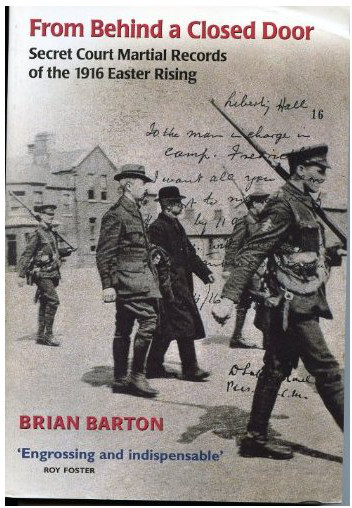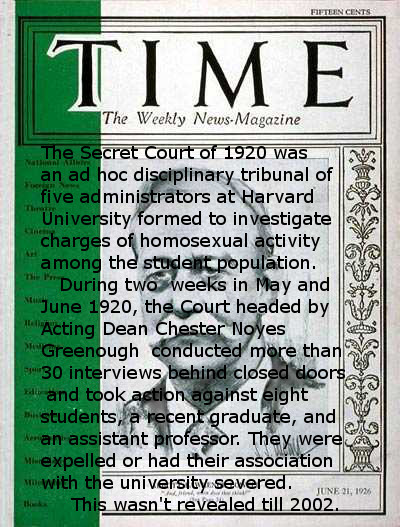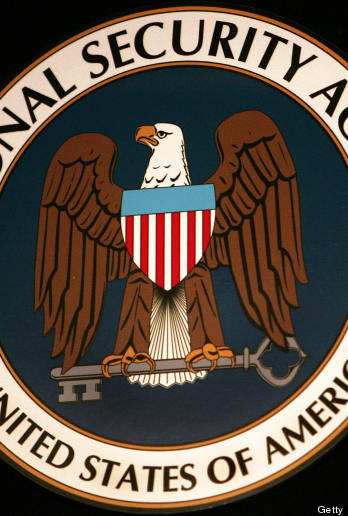It looks like you're using an Ad Blocker.
Please white-list or disable AboveTopSecret.com in your ad-blocking tool.
Thank you.
Some features of ATS will be disabled while you continue to use an ad-blocker.

Mike
The illicit organization became notorious for its revival of the horrors of the medieval Femegerichte – secret courts – which
dealt arbitrary death sentences against Germans who revealed the activities of the 'Black Reichswehr' to the Allied Control Commission.
- The Rise and Fall of the Third Reich
Mike

Mike

Document showing King Henry VII sitting in the Star Chamber.
[align=center]
The [color=gold] Star Chamber (Latin: Camera stellata) was an English court of law that sat at the royal Palace of Westminster from the late 15th century until 1641. It was made up of Privy Councillors, as well as common-law judges and supplemented the activities of the common-law and equity courts in both civil and criminal matters. The court was set up to ensure the fair enforcement of laws against prominent people, those so powerful that ordinary courts would never convict them of their crimes. Court sessions were held in secret, with no indictments, and no witnesses. Evidence was presented in writing. Over time it evolved into a political weapon, a symbol of the misuse and abuse of power by the English monarchy and courts.
[/align]
Mike

I don't know about what they think of themselves at the Secret Court
Wikipedia / United States Foreign Intelligence Surveillance Court
these days, but I hope they understand the history they are continuing.
Mike
Originally posted by mikegrouchy
I don't know about what they think of themselves at the Secret Court
[...]
these days, but I hope they understand the history they are continuing.
Mike
Like all dictatorships, they can't see in that mirror. They think of themselves as true patriots and righteous saviors. History is of no consequence--only their shining truth and the glorious future....
Originally posted by Ex_CT2
Like all dictatorships, they can't see in that mirror. They think of themselves as true patriots and righteous saviors. History is of no consequence--only their shining truth and the glorious future....
Yeah,
even the razor thin justification for the admissibility of secret recordings
becomes a double entendre when the warrant itself is issued in secret.
Mike
Any secret recordings obtained by law enforcement without a warrant are not admissible
Well, exactly. If they want you to go down, you're going down. Kinda like drone strikes. I seriously doubt that unconstitutional rubber-stamp secret courts worry very much about the finer technical points like legalities....
who assassinated Caesar then went
before the populi and demanded
justice for Caesar.
What we know as historical fact,
was a huge secret in the empire
for a very long while.
Mike
Originally posted by mikegrouchy
but I hope they understand the history they are continuing.
But that is the thing about history, it is one continuous motion passed on through multiple physical bodies. If it were like ideas on harddrives the people would be the latter and the ideas they carry are all dependent on one another right down to the first human who ever had an idea which qualified to everyone back then as an idea.
Point being if you neglect, ignore an entire period of history people might feel the consequences or their children as if a part of their psyche is missing or inaccessible like collective memory loss if you happen to know what is missing.
And after that first idea, because there had to be a first, people thought of a house, then it became like a farm and many appeared and became a town, with roads from one house to the other and common houses with rules for the next generation how it all came to be and then people lived together and somebody had the bright idea to bend or break the rules then police came around but also those who followed that other idea.
Later other towns emerged and countries so the army came to be. Then the internet emerges and people can learn about eachother and their histories and that is the current phase and the American police officer apparently decided to contribute to the idea of a world police or world army, moving on to either space and the universe or the Great Beyond. Of which I don't mean to sound threatening but rather something like religious police or thought police to enforce common truths every family should obey.
Originally posted by mikegrouchy
I don't know about what they think of themselves at the Secret Court
Wikipedia / United States Foreign Intelligence Surveillance Court
these days, but I hope they understand the history they are continuing.
Mike
They understand it quite well, probably better than you do. All the other courts (and the private school disciplinary body) you posted were created to try facts and determine guilt or innocence. The FISC does none of those things. It vets government surveillance requests for compliance with the law. You know how the government's surveillance activities were constrained before this so-called "secret court?" They weren't. You should be grateful the FISC exists.
Originally posted by FurvusRexCaeli
Originally posted by mikegrouchy
I don't know about what they think of themselves at the Secret Court
Wikipedia / United States Foreign Intelligence Surveillance Court
these days, but I hope they understand the history they are continuing.
Mike
They understand it quite well, probably better than you do. All the other courts (and the private school disciplinary body) you posted were created to try facts and determine guilt or innocence. The FISC does none of those things. It vets government surveillance requests for compliance with the law. You know how the government's surveillance activities were constrained before this so-called "secret court?" They weren't. [color=gold] You should be grateful the FISC exists.
I shall test that opinion now.
/bing search
/google search
/alta-vista search (same thing as yahoo these days, try the New Zeland flavor
/web-crawler search
Hmmmm what do we find.
/bing search
U.S. Foreign Intelligence Surveillance Court Public Filings
Beginning [color=gold] June 2013
us.courts.gov /fisc / index
So only since people have started kicking up a stink have even the public filings been made ... public.
and...
Warrant applications under the Foreign Intelligence Surveillance Act are drafted by attorneys in the General Counsel’s Office at the National Security Agency at the request of an officer of one of the federal intelligence agencies. Each application must contain the Attorney General’s certification that the target of the proposed surveillance is either a “foreign power” or “the agent of a foreign power” and, in the case of a U.S. citizen or resident alien, that the target may be involved in the commission of a crime.
www.fjc.gov / history
So why hasn't Eric Holder turned himself into FISCA for the fast and furious gun running scheme. OH that's right, cause he is the Attorney General. I guess in Washington nobody is watching that watcher.
The Foreign Intelligence Surveillance Court (FISC) is a secret court made up of 11 federal district court judges who are selected by the chief justice of the United States Supreme Court.
www.allgov.com / departments/ doj / fisc
So that means John G. Roberts is filling their bench.
Let's see the cut of his jib.
"We have gotten to the point these days where we think the only way we can show we’re serious about a problem is if we pass a Federal law, whether it is the Violence Against Women Act or anything else. The fact of the matter is conditions are different in different States, and [color=gold] State laws can be more relevant is I think exactly the right term, more attune to the different situations in New York, as opposed to Minnesota, and that is what the Federal system is based on.’
John Glover Roberts, Jr
- 1999 Radio Adress
Seeing as he was appointed by bush,
his team overseeing the FISC sure don't seem to have any problem
granting sweeping data collection permissions
even though Roberts is on record saying that the State laws are more relevant.
Do you and everyone else here realize that the NSA was found to be unconstitutional. But the FISA court has fought to keep that ruling top secret? Just some food for thought....
Do you and everyone else here realize that the NSA was found to be unconstitutional? But the FISA court has fought to keep that ruling top secret? Just some food for thought....
The FISC oversees requests for surveillance warrants against [color=gold] suspected foreign intelligence agents inside the United States by federal police agencies (primarily the F.B.I.).
Got to love how
in the same sentence
they pivot from foreign to
"within the United States" and don't even blink.
Each application for one of these surveillance warrants (called a FISA warrant) is made before an individual judge of the court. Like a grand jury, FISC is not an adversarial court: the [color=gold] federal government is the only party to its proceedings.
www.princeton.edu /FISC
If I'm parsing this correctly...
the government is representing
the government, and no one else.
Only three opinions issued by the FIS Court have ever been made public. The most recent of these came on Dec. 11, 2007, when the Court, referring to [color=gold] itself as a "unique and uniquely non-public court," refused a request from the American Civil Liberties Union (ACLU) demanding that the Court make public its order authorizing the Bush Administration to expand its program of electronic surveillance to include phone calls and emails of U.S. residents.
usgov.info.about.com
So they effectively grant permission to operate
on American soil, yet they are above American Jurisprudence.
Mike
-
Orange County Makes Shoplifting a Felony
Other Current Events: 1 hours ago -
It's Offical Now
US Political Madness: 3 hours ago -
The reason it works is.....
General Chit Chat: 4 hours ago -
Dick Van Dyke saved from Wildfire by neighbours on his 99th birthday
People: 6 hours ago
-
It's Offical Now
US Political Madness: 3 hours ago, 9 flags -
Orange County Makes Shoplifting a Felony
Other Current Events: 1 hours ago, 7 flags -
The reason it works is.....
General Chit Chat: 4 hours ago, 5 flags -
Dick Van Dyke saved from Wildfire by neighbours on his 99th birthday
People: 6 hours ago, 3 flags
-
It's Offical Now
US Political Madness • 8 • : xuenchen -
Orange County Makes Shoplifting a Felony
Other Current Events • 8 • : yeahright -
Post A Funny (T&C Friendly) Pic Part IV: The LOL awakens!
General Chit Chat • 7953 • : underpass61 -
Dick Van Dyke saved from Wildfire by neighbours on his 99th birthday
People • 1 • : soulrevival -
The reason it works is.....
General Chit Chat • 3 • : BeyondKnowledge3 -
London Christmas Market BANS Word ‘Christmas’
Social Issues and Civil Unrest • 44 • : Oldcarpy2 -
The Acronym Game .. Pt.4
General Chit Chat • 1024 • : JJproductions -
Christmas Dinner ??
Food and Cooking • 17 • : putnam6 -
1 Billion dollars
General Entertainment • 12 • : Blueracer -
Trump says ownership of Greenland 'is an absolute necessity'
Other Current Events • 49 • : Xtrozero
